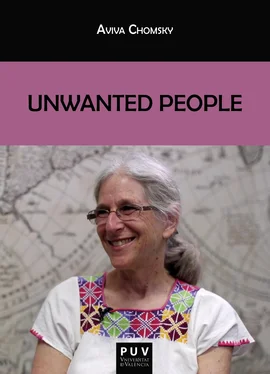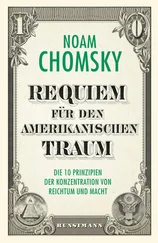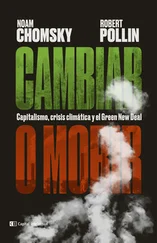Historically, people and organizations struggling to change U.S. society and policy have used direct action, boycotts, and street protests as strategies to pressure powerholders to change their laws, institutions, policies, or actions. The United Farm Workers called on consumers to boycott grapes in order to pressure specific growers to negotiate with their union. Antiwar protesters marched on Washington or targeted their Congressional representatives. They also took direct action: registering voters, pouring blood on draft records or nuclear weapons, sitting in front of trains carrying weapons to Central America.
All of these kinds of tactics remain valid options today. But there has been a puzzling shift away from actual goals and towards using these tactics merely to express one’s moral righteousness or “allyship.” I remember my first “take back the night” march in Berkeley, in the 1970s. As men and women marched through the campus holding candles, I wondered whether they thought that would-be rapists would undergo a change of heart when they saw that large sectors of the public disapproved of rape?
Over the years I have come to see more and more of what Adolph Reed calls “posing as politics.” Rather than organizing for change, individuals seek to enact a statement about their own righteousness. They may boycott certain products, refuse to eat certain foods, or they may show up to marches or rallies whose only purpose is to demonstrate the moral superiority of the participants. White people may loudly claim that they recognize their privilege or declare themselves allies of people of color or other marginalized groups. People may declare their communities “no place for hate.” Or they may show up at counter-marches to “stand up” to white nationalists or neo-Nazis. All of these types of “activism” emphasize self-improvement or self-expression rather than seeking concrete change in society or policy. They are deeply, and deliberately, apolitical in the sense that they do not seek to address issues of power, resources, decision making, or how to bring about change.
Oddly, these activists who have claimed the mantle of racial justice seem committed to an individualized, apolitical view of race. The diversity industry has become big business, sought out by universities and companies seeking the cachet of inclusivity. Campus diversity offices channel student protest into alliance with the administration and encourage students to think small. While adept in the terminology of power, diversity, inclusion, marginalization, injustice, and equity, they studiously avoid topics like colonialism, capitalism, exploitation, liberation, revolution, invasion, or other actual analyses of domestic or global affairs. Lumping race together in an ever-growing list of marginalized identities allows the history and realities of race to be absorbed into a billiard ball theory of diversity, in which different dehistoricized identities roll around a flat surface, occasionally colliding.
Let us be very clear. The white nationalists who marched in Charlottesville, hate-filled and repugnant as their goals may be, are not the ones responsible for the U.S. wars on Iraq, Syria, and Yemen. They are not responsible for turning our public school system over to private corporations. They are not responsible for our separate and unequal health care system that consigns people of color to ill health and early death. They are not the ones foreclosing and evicting people of color from their homes. They are not the authors of neoliberal capitalism with its devastating effects on the poor around the planet. They are not the ones militarizing the borders to enforce global apartheid. They are not behind the extraction and burning of fossil fuels that is destroying the planet, with the poor and people of color the first to lose their homes and livelihoods. If we truly want to challenge racism, oppression, and inequality, we should turn our attention away from the few hundred marchers in Charlottesville and towards the real sources and enforcers of our unjust global order. They are not hard to find.
(2017)
3
Why “Black Panther” Is Revolutionary, Even Though It Isn’t
Of course a Marvel Comics, Hollywood, high-budget capitalist product isn’t going to be actually revolutionary. Or isn’t going to meet every revolutionary purist’s standards. But there is a lot that is revolutionary about this movie.
How many Hollywood films delve into the political economy of colonialism? We’ve had plenty of popular films that offer color-blind multiculturalism (like “Star Trek,” or the soon-to-be-released “A Wrinkle in Time”), featuring black characters but in ways completely decontextualized from black and African history. Some even grapple with issues of race and racism (like recently, “Get Out”). But Hollywood does not generally take on global political economy. Here, black and African history, and a critique of colonial political economy, are central to the plot as well as to the aesthetic of the film.
In “Black Panther” we see with crystal clarity how, as Guyanese historian Walter Rodney so brilliantly showed, Europe Underdeveloped Africa , through the counter-history of an African country that managed to evade colonization and travel its own path to development. Director Ryan Coogler says that he was inspired to imagine Wakanda on a visit to Lesotho, but Wakanda also invokes the maroon communities of the British Caribbean or the palenques or quilombos of South America, where blacks who escaped from slavery established autonomous communities on American soil, reviving or recreating African or neo-African forms of governance and culture. Some of these communities, like Palmares in Brazil, evaded European conquest for decades or generations. Some, like the Jamaican Maroons, signed treaties to coexist with European colonial powers. Contemporary author Christian Parenti, interviewing Assata Shakur in Havana, called her a “Post-Modern Maroon in the Ultimate Palenque.”
The palenque was revolutionary not because it was a utopia of economic, social, racial, and gender equality or collective ownership of the means of production, but because it claimed autonomy from the hegemonic colonial order and, contra Margaret Thatcher, proved that in fact “there is an alternative.” Its very existence inspired flight or rebellion by those still enslaved.
African-born and Afro-descended peoples were not the only ones to flee or resist oppressive colonial society in the Americas. Native peoples recreated kingdoms, established small villages, and maintained liberated spaces outside of European colonial control, from Vilcabamba in sixteenth century Peru to Comanchería in the American West or the rochelas of northern Colombia in the nineteenth century to the Zapatistas in Chiapas and the Amazonian tribes resisting oil exploration of the twenty-first. Colonial domination of the Americas has consistently and repeatedly been resisted by peoples refusing colonization and claiming self-determination and autonomy.
Colonizers insisted (and continue to insist) that the peoples of color they colonized were primitive, barbaric, and incapable of self-government or economic development—that they were peoples without history, trapped in a primitive past and obstacles to modernity. The quest for a different kind of modernity: non-European, non-capitalist, non-white—motivated most of the twentieth century’s revolutions. Antiguan author Jamaica Kincaid beautifully captured the links among colonialism, capitalism, and racism, and suggests why resistance to colonial rule encompassed a liberatory imagination that necessarily imagined overturning the whole social order. Her tome is written as an unsolicited letter to Antigua’s British colonizers:
You had always felt people like me cannot run things, people like me will never grasp the idea of Gross National Product, people like me will never be able to take command of the thing the most simpleminded among you can master, people like me will never understand the notion of rule by law, people like me cannot really think in abstractions, people like me cannot be objective, we make everything so personal. You will forget your part in the whole setup, that bureaucracy is one of your inventions, that Gross National Product is one of your inventions, and all the laws that you know mysteriously favour you. Do you know why people like me are shy about being capitalists? Well, it’s because we, for as long as we have known you, were capital, like bales of cotton and sacks of sugar, and you were the commanding, cruel capitalists, and the memory of this is so strong, the experience so recent, that we can’t quite bring ourselves to embrace this idea that you think so much of ( A Small Place , 36-37).
Читать дальше












